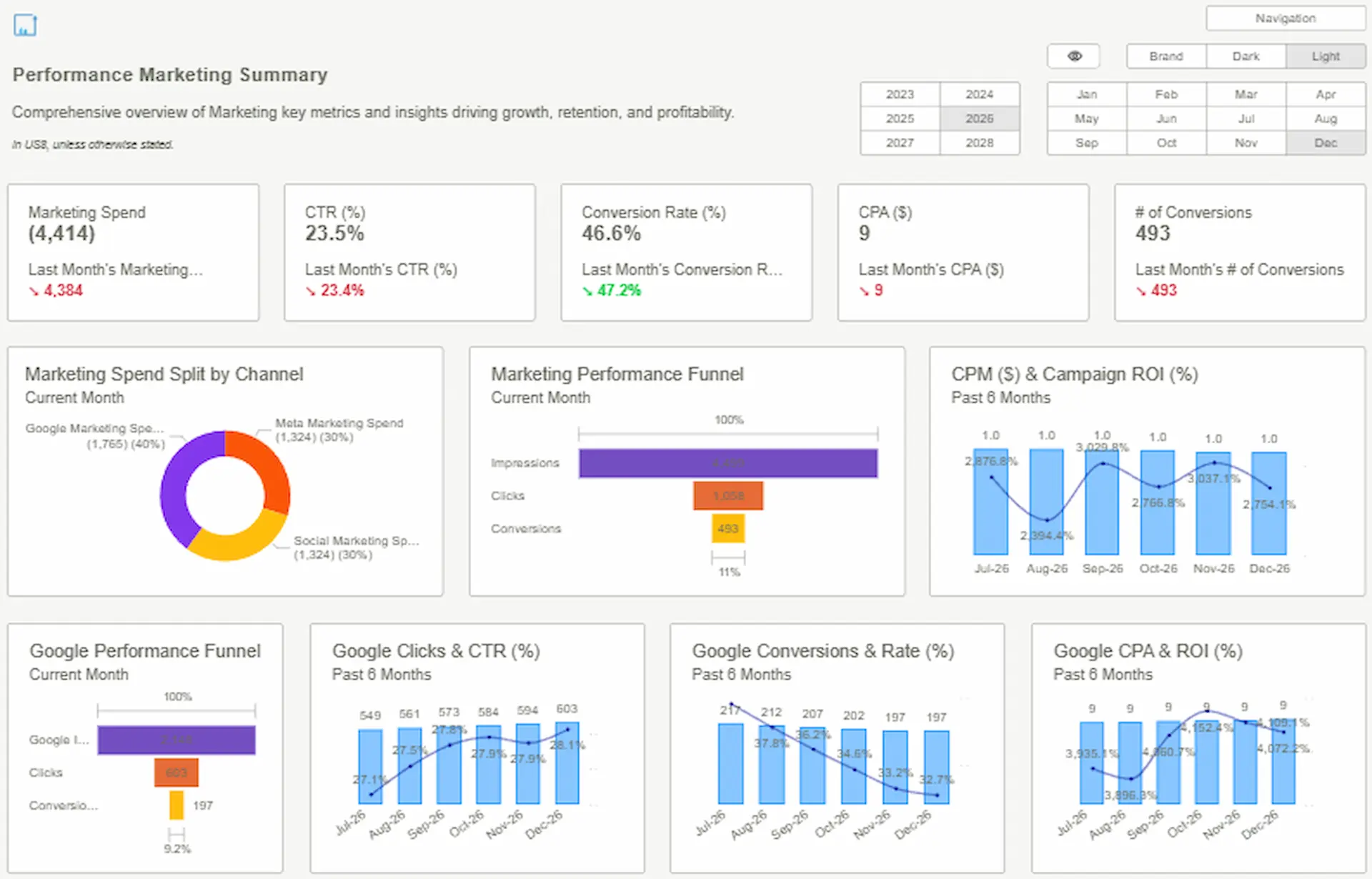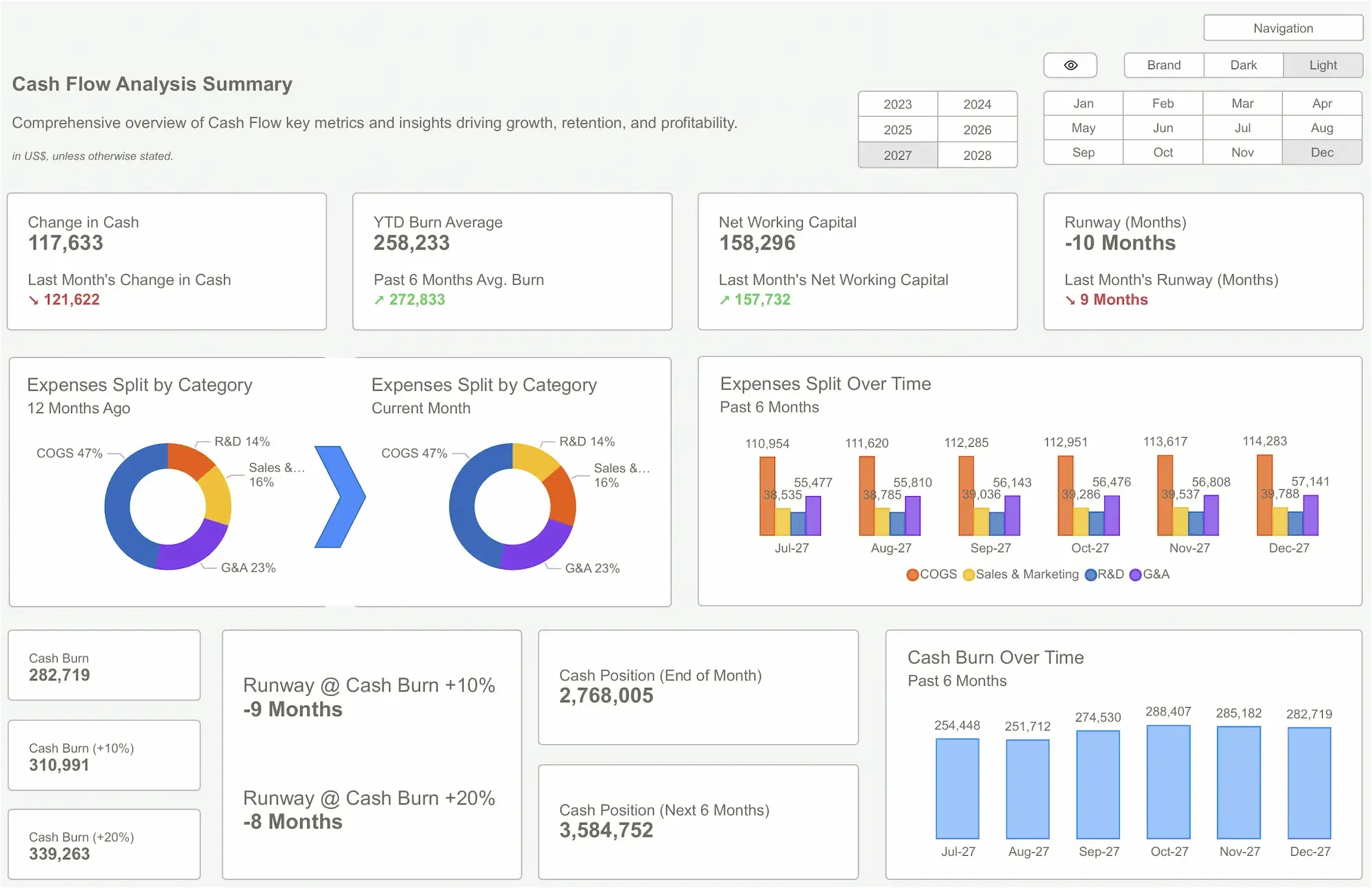Every CEO and founder is being told they need an "AI strategy." Your board is asking about it. Your investors are whispering about it. The pressure is on to bolt some magical AI onto your operations before you get left behind.
This is a trap.
The frenzy to adopt AI is causing smart leaders to make a foundational mistake: they’re building a roof without a foundation. They’re buying expensive tools and hiring for "AI" roles without first asking a much more important, much less sexy question: is our data even usable?
An AI strategy built on messy, siloed, or untrustworthy data isn't a strategy. It's an expensive fantasy. The real work, the work that unlocks actual value, begins with a data strategy. This is the domain of Data Analytics Consulting, and it’s the only logical place to start. Forget the hype. Let’s talk about what actually works.
Reveal the Real Problem
The core problem is that everyone is selling the AI dream, not the data reality. You’re focused on the wrong end of the equation. You’re asking, “Which LLM should we use?” instead of, “Can we even trust the revenue number in this dashboard?”
This is why most early AI initiatives fail. It’s not a failure of the algorithm; it’s a failure of the inputs. That expensive new hire or flashy software platform can’t help you if your data is a disaster.
Here are the symptoms that your data house is not in order:
- Metric Anarchy: Your sales team reports one number for "customer," marketing reports another, and finance has a third. Nobody can agree on the definition of basic terms like “churn” or “active user.”
- Dashboard Distrust: You have dashboards, but nobody believes them. Every board meeting involves manually pulling numbers from five different systems into a spreadsheet "just to be sure."
- Siloed Systems: Your CRM, ERP, and billing platform are locked in a silent war. Getting them to share data requires a team of engineers and a week of duct tape.
- "Garbage In, Gospel Out": You plug this chaotic data into a model, and it produces a confident, completely wrong answer. The AI doesn’t know your data is a mess; it just processes what it’s given. The result is dangerously misleading "insights."
You’re paying for the promise of AI but getting bogged down in the reality of bad data.
 Data Analytics Consulting
Data Analytics ConsultingReframe the Thinking
Let's reframe this. Stop thinking about an "AI Strategy." Start thinking about a "Data-First Strategy." AI isn't the starting gun; it's the trophy you get for winning the data race.
The flawed approach is asking, “What can we do with AI?” This leads to unfocused, expensive experiments that go nowhere.
The effective approach asks, “What critical business question can we not answer today because our data is a liability?” This focuses your efforts on fixing the foundation to solve a real, pressing problem. The goal isn't to use AI; it's to make better decisions, faster. AI might be a tool for that, but only after the foundational data work is done.
Your data's integrity is the speed limit on your company's ambition.
This is the mindset shift at the heart of effective Data Analytics Consulting. It’s about building the pipes before you turn on the water. It’s about creating a single source of truth that the entire organization can trust and build upon. This involves auditing your data sources, standardizing definitions, cleaning up historical messes, and building a reliable infrastructure. It’s not glamorous, but it’s the only way to build a company that can actually leverage advanced technology instead of just talking about it.
 5 Automation Projects With ROI in 30 Days
5 Automation Projects With ROI in 30 DaysWhat Good Looks Like
So what does a company that gets this right look like? The difference is night and day.
Before a data strategy:
- Decisions: Based on gut feel, the loudest voice in the room, or outdated reports.
- Meetings: Defensive and frustrating. Time is wasted arguing about which numbers are correct instead of debating the strategy itself.
- Speed: Glacial. Answering a simple strategic question like "Which customer cohort has the highest LTV?" takes weeks of manual data pulling and spreadsheet gymnastics.
- AI Readiness: Zero. Any attempt to implement AI is doomed from the start.
After a data strategy is in place:
- Decisions: Based on clean, reliable, and up-to-date information. You can ask complex questions and get trustworthy answers in minutes, not weeks.
- Meetings: Productive and forward-looking. Everyone works from the same set of facts. The debate is about what to do next, not whose data is right.
- Speed: Accelerated. You can spot market shifts, identify operational leaks, and double down on winning strategies in near real-time.
- AI Readiness: High. With a clean, structured data pipeline, you can now actually build or deploy AI tools that generate real value—from predictive forecasting to automated customer segmentation.
This clarity isn't just an operational nicety; it's a strategic weapon. It gives you credibility with your board, confidence in your pivots, and a massive advantage in capital efficiency. You stop guessing and start knowing.
 Data | EY – Forensic Data AnalyticsAI Consulting Services
Data | EY – Forensic Data AnalyticsAI Consulting ServicesConclusion
The pressure to adopt AI is real, but the hype is a distraction. Chasing a shiny new algorithm while your data is a five-alarm fire is a recipe for wasted time and money. The smartest leaders right now aren't the ones launching the most AI projects; they’re the ones quietly getting their data house in order.
A robust data foundation is the prerequisite for everything else. It unlocks operational efficiency, strategic clarity, and, eventually, a successful AI implementation. This foundational work—the auditing, cleaning, and structuring of your most critical asset—is the core of Data Analytics Consulting. It’s about building an engine for intelligence, not just buying a new dashboard.
Don't build your future on a foundation of sand. The AI can wait. Your competitive advantage can't.
When you're ready to stop guessing, we're ready to help.Get Started >
Ready to Unlock The Full Power of Clarity?
Explore our engagement options and pick the plan that fits your workflow.




